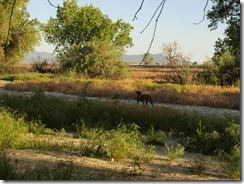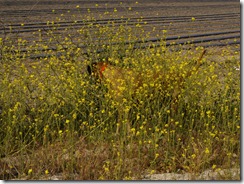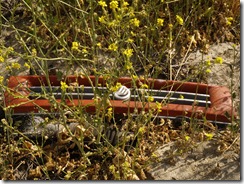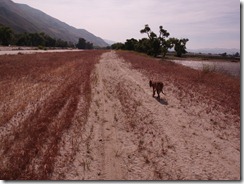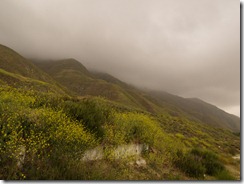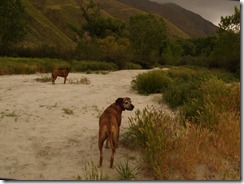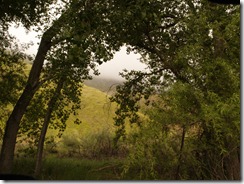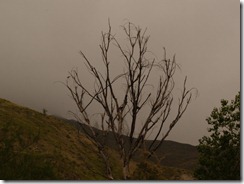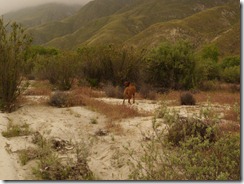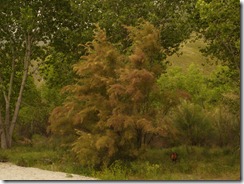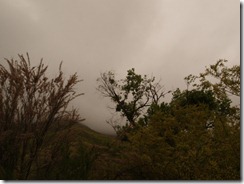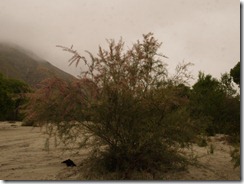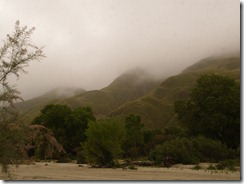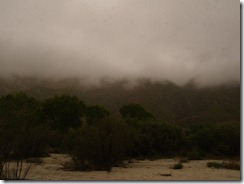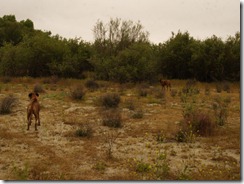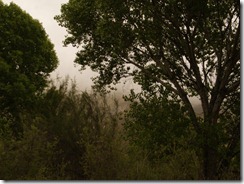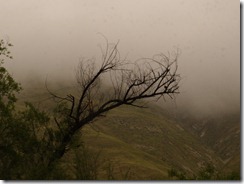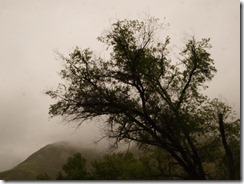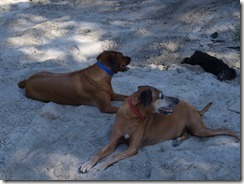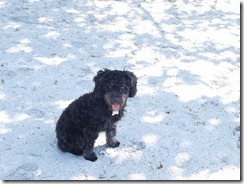[E-520 +Zuiko 35mm lens]
Thursday, April 28, 2011
Obama to appoint Panetta and Patraeus?!?!
The problem with Liberal presidents isn’t that they don’t believe in defending the country, they do. The problem is that they don’t do it very well; at least that was the case with Kennedy, Johnson, Carter and Clinton. Also, the bad guys think our Liberal Presidents are weak so they are more likely to try to push them around than they are with Conservative presidents. The most notable example is Khrushchev who thought Kennedy weak (which historians tell us he was) and pushed and pushed until Kennedy finally stood up to him during the Cuban Missile Crisis. A Liberal President is not likely to totally capitulate – at least it has not happened so far.
I give Obama higher marks than presidents noted above. He started out saying all the Liberal-Radical things, but when he became enmeshed in the job, he did what was necessary. Are our enemies pushing him around more than they would have Bush? Perhaps, but only a little. For example, Qhadaffi gave up his WMD plans during the time Bush was flexing his muscles, but he seemed resolved not to give up anything during the Obama administration. Still, that hasn’t gone terribly well for him, and I rather think Obama did the right thing by letting NATO deal with Qhadaffi rather than risk the expense of three fronts of war. And perhaps NATO has learned some things since their inept attempt to quell the Serbs.
Conservatives aren’t likely to fault Obama for his recent Defense Department and CIA picks. Witness this FrontPageMag article:
“With Robert Gates set to leave his post as Pentagon chief this summer, reports are circulating that President Barack Obama will soon appoint CIA Director Leon Panetta to take over as secretary of defense and Gen. David Petraeus to slide into the top spot at the CIA. Given the alternatives that Obama could have chosen—and probably would rather choose—Panetta and Petraeus are solid picks. Not only do they have proven track records and backing in Congress; they also underscore that despite all the rhetoric, Obama continues to fill key security and defense posts with people who understand the country is at war.
“A little history is in order. It pays to recall that as a candidate and in the early months of his presidency, Obama rejected the Bush administration’s characterization of America being a nation at war. For example, the Obama administration made a concerted effort to expunge the “war on terrorism” phraseology from official pronouncements, ordering the executive branch to use the banal, bland and bureaucratic “overseas contingency operations” instead. In quick succession, Obama ordered the closure of the detention facility at Guantanamo Bay, sped up the pullout of troops from Iraq, put a time limit on the U.S. mission in Afghanistan and made entreaties to the thugs who run Iran. In the midst of this 180-degree turn, Obama’s secretary of homeland security even went so far as to use the Orwellian phrase “man-caused disasters” rather than call terrorism by its name.”
The writer of this article, Alan W. Dowd, goes on to describe the merits of Peneta and Patraeus. Unlike some conservatives who would bite off their tongues rather than say anything good about Obama, he gives Obama credit for doing the right thing. To underscore this confidence Dowd has Obama’s doing the right thing in regard to dealing with our nation’s enemies before he does it. While Panetta and Patraeus have yet to be appointed, he clearly believes the rumor saying that they will be. He believes that Obama, rather than run true to the ideals of the Leftists who helped put him in office, will do his utmost to combat our enemies both militarily and covertly.
This doesn’t mean Obama is giving up his Liberal domestic agenda, and note the advertisement adjacent to the subject article on the first page “Find out More. Help us stop Obama’s Radical transformation of America. Find out more. Subscribe to FrontPageMag.”
I noticed that Fox News reported the same information, but managed it without the “little history” Dowd provides: http://www.foxnews.com/politics/2011/04/28/obama-prepares-announce-new-national-security-team/
Wednesday, April 27, 2011
African-American influence on the African-British
From pages 30-31 of King’s The Internationalization of English Literature, the chapter “The End of Imperial England 1948-1969”:
“The late 1960s and part of the 1970s continued the importation of American black culture and Black Power. A major influence on the new black British writers of the next two decades was African American writing, an influence from which they would liberate themselves as the contexts were unlike those in England. Ferdinand Dennis recalls reading such books as Stokeley Carmichael’s Black Power, Frantz Fanon’s Black Skin, White Mask, Eldridge Cleaver’s Soul on Ice, and Bobby Seale’s Seize the Time. When studying for his A levels at a college of further education, he listened to lectures by John La Rose and Darcus Howe and heard Linton Kwesi Johnson in performance with a band. Dennis himself adapted the manner of a black revolutionary. He spoke with black American idioms, and wore a black beret, a black leather jacket, and black trousers. Although born in Jamaica and brought up in England he had, along with others, become a mimic black American. While this gave him historical knowledge and a conceptual vocabulary that as a black British youth he lacked, it applied to a land where there had been slavery and where racial discrimination had brought the United States close to a race war. England was filled with imitation Malcolm Xs, some of whom were idealized by white progressives. The best known was Michael X. This infatuation is the subject of a long critical essay by V. S. Naipaul. Michael X progressed from con man to murderer. Dennis was later to write in Voices of the Crossing (2000), ‘I have often thought just as the world is increasingly dominated by American culture, so the small population of people of African descent in Britain have become victims of African-American cultural imperialism, mimicking styles and taking on concerns which sit uneasily in the British context.’”
COMMENTS: It looks as King is saying Frantz Fanon was an African American. Yes Dennis undoubtedly read Fanon, but King should at least have qualified the inclusion of Fanon in the above, and he would have been best off leaving him out entirely. Stokeley Carmichael, Eldridge Cleaver and Bobby Seale were American but Frantz Fanon was French.
It strikes me as reasonable that African-British youth have taken their cues from African-Americans. British had no slavery on their island it is true, but plenty of English gentlemen made their fortunes selling slaves to the English in southern America and elsewhere. Furthermore, those receiving slaves in America were largely British until the States won their independence which wasn’t really won to Britain’s satisfaction until after the War of 1812. Were any slaves sold to Southern Americans after 1812? Can King think of no equivalent British context for the complaints of African Americans?
Wikipedia tells us “Only a fraction of the enslaved Africans brought to the New World ended up in British North America – perhaps 5%. The vast majority of slaves shipped across the Atlantic were sent to the Caribbean sugar colonies, Brazil, or Spanish America.” King has already by this point in his book discussed Caribbean immigrants. In fact Dennis is such a one. Is there no justification for these Caribbean immigrants to identify with African Americans? In the Caribbean “the lack of proper nourishment . . . and poor health” prevented Africans from increasing in number as they did in America. “Of the small numbers of babies born to slaves in the Caribbean, only about ¼ survived the miserable conditions of a sugar plantation.” Perhaps the Caribbean-Africans, malnourished, overworked and miserable as they were had no chance to develop their own voice, but what was the harm in their listening to the African-Americans. Dennis at one time felt the resonance even if by 2000 he recanted.
And what is the “cultural imperialism” Dennis refers to? Does it comprise “cultural imperialism” if someone from Britain is attracted to some idea of fad or political stance in America? Imperialism implies force of some sort, but what force is in play in this situation? Does the African-British youth have no choice when he reads Eldridge Cleaver’s Soul on Ice, or sees certain portrayals in American movies? I think Dennis has been carried away by the term “dominated.” Maybe American culture has captivated the youth in Britain, but there is neither Captor nor Dominator. Force was not used. Maybe Dennis was dominated by the British predisposition to view as many things as possible in terms of Imperialism. And maybe he grew ashamed of the extremeness of his own earlier imitation.
Tuesday, April 26, 2011
England good at “incorporating” immigrants
The 13th volume of The Oxford English Literary History, written by Bruce King in 2004 is entitled The Internationalization of English Literature. He writes on page 1, “During the second half of the twentieth century the literature of England went through a major change . . . Unlike previous period changes this one had its basis in a large influx of peoples from elsewhere . . . if the nation seemed to be withdrawing into a little England of post-imperial dreariness and irritation, having a diminished relationship to Europe and the United States, or fragmenting into micro-nationalisms, the new immigrants made English literature international in other ways than it had been during the Empire. England was once more at the centre of significant developments, and as England became multiracial and multicultural the claim that they do things better in France no longer applied. England was much better at incorporating people than most of Europe.”
King will go on to discuss the literary achievements of these new immigrants, but before leaving page one, is England truly “better at incorporating people than most of Europe”? My impression is that Europe as a whole and without exception is not very good at this “incorporating” if King means what I usually see referred to as “assimilation.” But if England is “much better” than “most of Europe,” that is still saying something notable in this age of Islamist trouble, or is it?
I found it jarring to read the following from April 26, 2011 edition of “The Telegraph” (http://www.telegraph.co.uk/news/worldnews/wikileaks/8472784/WikiLeaks-Guantanamo-Bay-terrorists-radicalised-in-London-to-attack-Western-targets.html ):
“Abu Qatada and Abu Hamza, two preachers who lived off state benefits after claiming asylum, are identified by the American authorities as the key recruiters responsible for sending dozens of extremists from throughout the world to Pakistan and Afghanistan via London mosques.
“The leaked WikiLeaks documents, written by senior US military commanders at Guantánamo Bay, illustrate how, for two decades, Britain effectively became a crucible of terrorism, with dozens of extremists, home-grown and from abroad, radicalised here.
“Finsbury Park mosque, in north London, is described as a “haven” for extremists. United States intelligence officials concluded the mosque served as “an attack planning and propaganda production base”.
“The files will raise questions over why the Government and security services failed to take action sooner to tackle the capital’s reputation as a staging post for terrorism, which became so established that the city was termed ‘Londonistan’.
“The documents show that at least 35 detainees at Guantánamo had passed through Britain before being sent to fight against Allied forces in Afghanistan. This is thought to be more than from any other Western nation.”
I don’t normally get caught up an examination of words, but does King mean by “incorporation” the same thing an American might mean by “assimilation”. At first blush the Wikileaks report seems to contradict King’s more benign view of his native England, but “incorporation” doesn’t by definition exclude an enclave comprising a “staging post for terrorism.” As long as they are happily ensconced in Londonistan they can be defined as “incorporated.”
But over here in the U.S. we wouldn’t consider such people “assimilated,” which may or may not be of interest to King who after all will be concentrating on literature and not terrorism, but then I wondered whether these “incorporated” terrorists wrote anything that King takes an interest in. I am still struggling with his introduction so I can’t promise to find out, but I shall try.
Friday, April 22, 2011
Where no birds sing
apparently Duffy wasn’t able to shake off all the foxtails he wallowed in. He spent some time with the vet getting them removed and, of course, has been grounded. No more visits to the river for Duffy until after foxtail season.
Monday, April 18, 2011
Coyotes in the fog, 4-18-11
[E1 & 14-54mm Zuiko lens]
This was a day when I set the camera to capture the most light but even then could only take pictures in the brightest areas. If we entered beneath the trees or into the shadows, my camera saw this:
The last few times we went to the river it was hot, so here is Duffy under a favorite shade tree, but there is no shade:
The fog didn’t come all the way to the ground as you can see – for we got as wet as if it had been raining. I had my one waterproof lens and later looking at the photos on my computer could see faint water spots.
Then at one point I heard what sounded like the terrified howl of a child which resolved itself into the screeching of a coyote. I looked around frantically for Duffy. I imagined the howling conveying, “come on you coyote pack-members. I have a nice Duffy breakfast for you.” So I rushed back toward the sound.
The coyote kept it up so I readily found where they were, but just as I was trying to figure out how best to get to them, Duffy came up beside me with a “what’s going on” look on his face. In this next photo Duffy was standing beside me as I called Ginger & Sage to come on back the other way with us. They were interested in the howling but not inclined to enter the bushes themselves. Notice the hackles on Ginger’s back.
Tuesday, April 12, 2011
The Red Shouldered Hawk
[E-520, an Olympus OM 1:5 200mm lens, and a Super Albinar 2X Converter]
This is an old film-type lens & converter. I’m not using a tripod.
While I was watching, he (or she) opened his mouth and emitted a “scree”-type sound.
What the dogs were doing while I messed with the hawk: (For these I used a 35mm lens)


